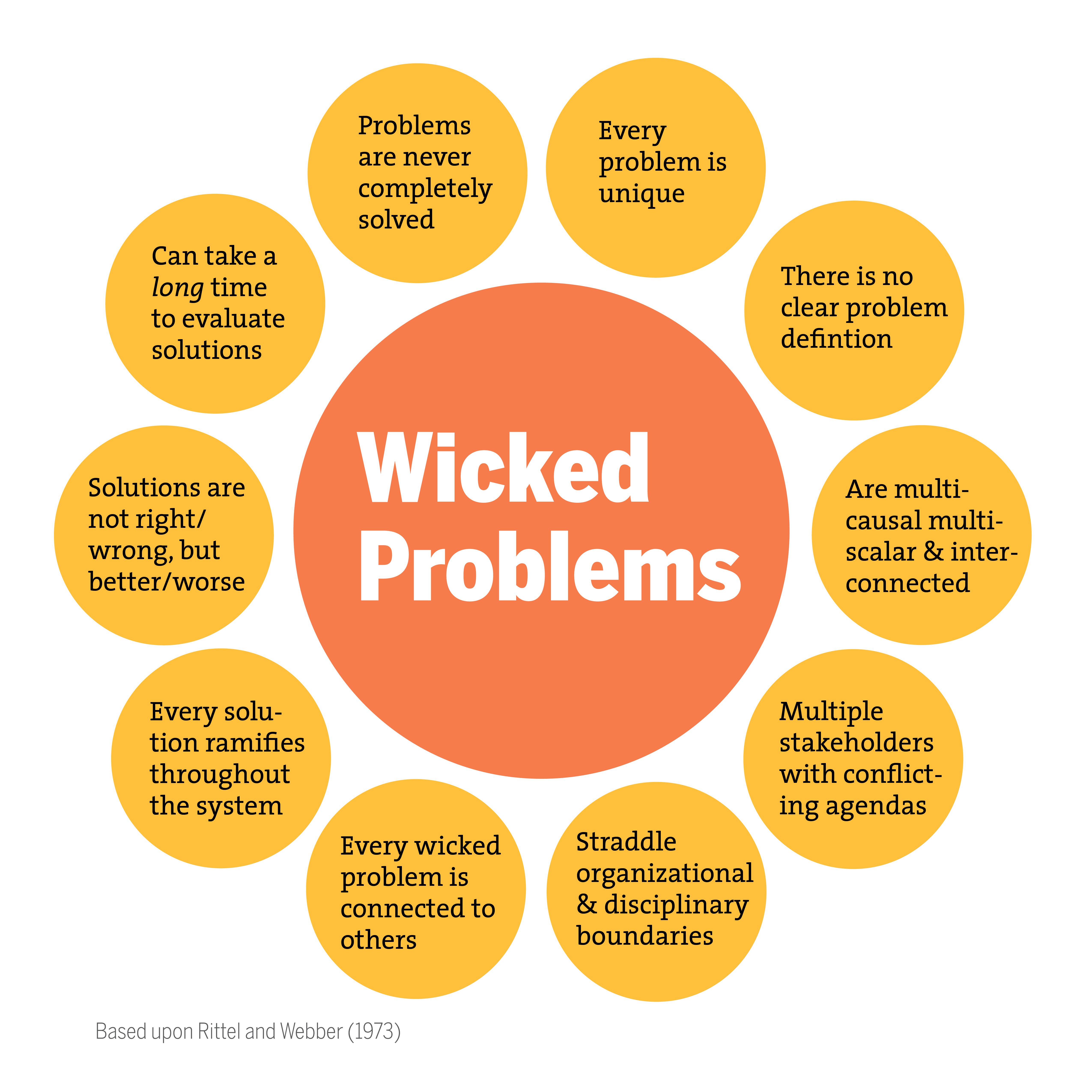This spring, the PPMC was invited to deliver the keynote presentation to the 3rd Annual Networked for Change Conference, held in Wichita. The event brings public, private, and nonprofit sector stakeholders together to connect persons with ideas and resources that help drive change and foster collaborative solutions. The topic, “Breaking Down Siloes to Create Transformative Change,” was an opportunity to talk about some of the work we do at the Center, the approach we bring to collaborative public policy challenges, and where our belief in this approach comes from. The term “Silos” references isolated stakeholders doing important, complimentary work without coordination or cohesive vision to specific desired change.
In the early 1970’s, Horst Rittel and Melvin Webber, professors in systems science and planning, respectively, authored an article called “Dilemmas in a general theory of planning.” The work, captured by a colleague of Rittel’s at the time as a description of “social challenges that are ill-formulated,” provided language to describe the types of challenges we see today across the public policy landscape. The attributes of a “wicked problem” are illustrated in the image below.

At the PPMC, we view a lot of our work through the prism of “wicked problems.” As a team dedicated to enhancing public service and helping leaders make effective decisions with limited resources, the solutions we help develop with our clients have some relationship to the components of wicked problems - whether we are hired to help develop a strategic plan for a community or organization, evaluate a program through quantitative analysis, or educate and support a network of public service professionals.
At the Networked for Change conference, we drew from our experience with Wichita Collective Impact (WCI), the Homelessness Task Force of Sedgwick County / Wichita, and the Mental Health Substance Abuse Coalition to share some of what we’ve learned from working at the center of wicked problems.
In each of these client relationships, the challenges are complex, intersectional, and without a clear owner of the problem or the solution. WCI’s focus on early childhood education – kindergarten readiness and 3rd grade reading proficiency – has no silver bullet. Similarly, homelessness, mental health, and substance abuse, have no single intervention or policy change that result in change. But change can occur, as our community is experiencing through these efforts.
In the PPMC’s role as convener, project manager, researcher, strategic partner, and facilitator in these efforts, we’ve learned in these highly collaborative, complex, systems-level efforts that change and progress require five key elements.
1. Trust: Build it and earn it
When no one owns the challenge or the solution – accountability and trust are two sides of the same coin. Bringing people and organizations to the table is hard. Competing interests and real tensions that exist among models, missions, or money creates a need to be clear about what success and progress look like – and how it can be reinforced by each partner.
2. Assume good intentions
Sometimes the most effective way to move forward is to simply not take a step back. When partners and stakeholders come to the table willingly, give grace where it is needed, and assume the best intentions. The work of tackling protracted challenges is hard, continuous, and often unseen.
3. Celebrate the wins
The progress along the path needs to be measured and acknowledged. When long-sought programs take shape, coordination improves, or systems begin to change – pause, take time to acknowledge how hard and important that is, and celebrate.
4. Overcommunicate without isolating conversations
Loosely bound coalitions of stakeholders mean communication is essential. Keeping partners and stakeholders up to date and at the same pace is half the challenge. The information and communication must have a convening spot, a place and framework that reinforces trust.
5. Stay committed to the north star
Because wicked problems have no definitive start or end, the specific, measurable goal that stakeholders set is crucial. When setbacks occur, energy stalls, or the sheer scale of the challenge sometimes overwhelms, the “north star” is the finite and specific goal. Come back to it, focus, and proceed.
Everyday, the PPMC is honored to take part in work like this across our community, region, and state. The lessons we’ve learned aid us in continuous refining and improvement to our role as a team of public service professionals working to partner on solutions that build capacity within communities.
If you are interested in learning more about our work, or if you have your own experience of facing or struggling through wicked problems in your community, we’d love to hear from you. You can reach out to james.roberts@wichita.edu.

